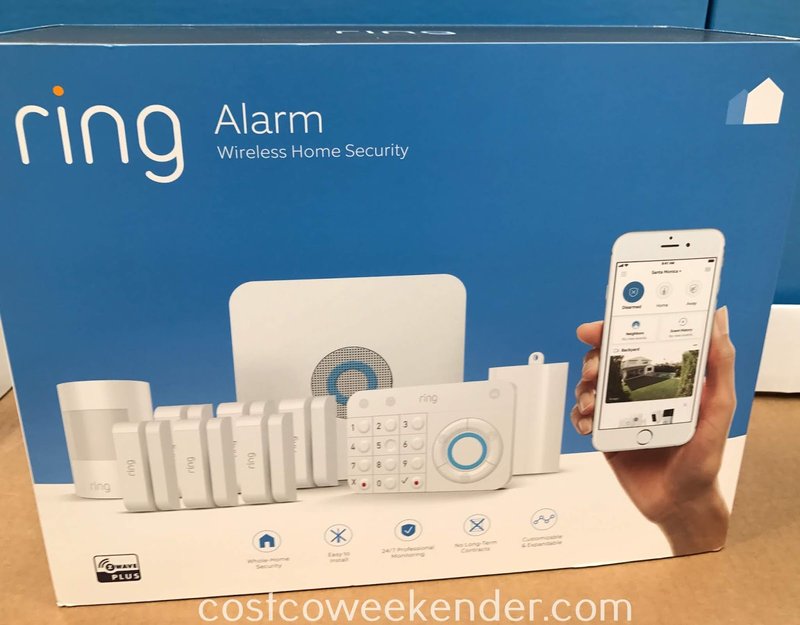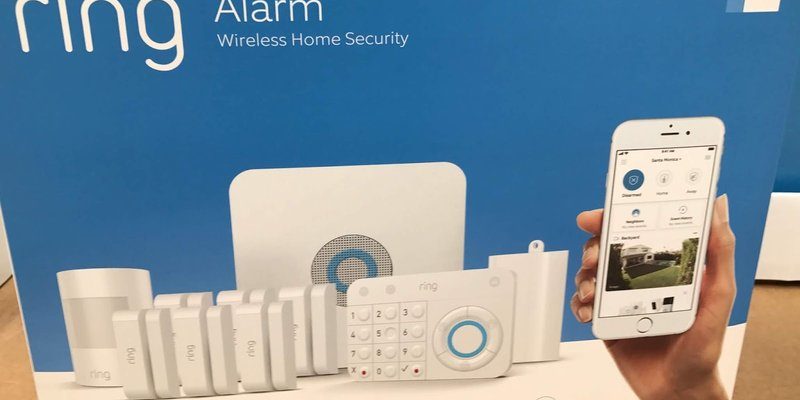
Imagine you’re at a neighborhood block party. Everyone’s keeping an eye on each other’s houses—Ring devices do a lot of the same, but with modern tech. Now, when Ring (owned by Amazon) asks you to register online, it’s a bit like writing your name and address on a community clipboard. Who sees that info? Where does it go? And could someone misuse it if it fell into the wrong hands? Let’s wade through the details, sip some metaphorical coffee, and figure out whether online warranty registrations for Ring security systems are as safe as they claim to be.
How Do Online Warranty Registrations for Ring Devices Work?
When you buy a new Ring camera, doorbell, or alarm system, you’ll find instructions encouraging you to register your product online. That’s not just busywork—it’s what starts your warranty clock. This process is pretty standard for most electronics these days, and Ring makes it fairly simple.
Typically, you’ll be directed to Ring’s official website (often via a unique code in the box). You’ll enter a few details: your name, email address, maybe your home address, device serial number, and the date of purchase. Sometimes, you might need to confirm your product by syncing it with your account during setup, but that’s usually more about enabling features, not the warranty itself. The whole process usually takes less than five minutes.
The main aim here isn’t to trip you up or grab your info for no reason. Ring wants to connect your specific device to you. That way, if there’s a recall, a security update, or a battery replacement needed, they know exactly who to contact. It’s a little like leaving your phone number with a trusted neighbor—you hope you never need it, but you’ll be glad it’s there if something comes up.
What Information Does Ring Collect—and Why?
Here’s the thing: any time you register a product warranty online, there’s some give-and-take. Ring (and most other smart device companies) ask for certain details so they can help if the remote, alarm, or camera needs troubleshooting or a reset. But what *exactly* are you handing over?
You can expect to provide:
- Name and contact info – So Ring knows how to reach you if there’s an issue.
- Device serial number or registration code – Proves you actually own the device.
- Purchase details – Like the date and retailer, to verify your warranty period.
- Home address (optional) – Sometimes needed for service, shipping replacements, or confirming ownership.
None of this is particularly spooky on its own—pretty standard for any kind of warranty registration, whether it’s for a battery-powered doorbell or a universal remote. The risk, as always, comes from how that data is stored and handled. Ring promises to safeguard your info, but it’s understandable if you want to peek under the hood and see what that actually means.
Is Online Registration Safe? (And What Are the Risks?)
Alright, let’s get into the heart of it: is online warranty registration for your Ring system really safe, or is there reason to be nervous?
Honestly, if you’re registering directly through Ring’s official website (look for the lock icon and “https” in the address bar), the process itself is about as secure as online shopping. Ring uses strong encryption to keep your info private—it’s like putting your details in a sealed envelope before sliding them through a mail slot. They also have privacy policies that spell out *how* they’ll use your information, and you have some control over your data in your account settings.
But is it bulletproof? No system ever is. Anytime your personal data lives on someone else’s servers, there’s a slim risk—from hacking, phishing scams, or even just human error. Most problems don’t happen during the initial registration, but later, if your account password isn’t strong, or if you fall for a suspicious email that asks you to “reset” or “sync” your device via a fake link.
Pro tip: Only register your warranty through the official Ring website or app. Never enter your details on a page you reached from a random email or ad, no matter how official it looks.
Comparing Online Registration to Mailing a Warranty Card
You might be wondering, “Isn’t mailing in a paper warranty card safer?” Back in the day, you’d find a little postcard in your new gadget’s box, scribble your info, and drop it in the mail. That felt low-tech but maybe more private.
But let’s be honest: mailed-in cards have their own risks. Paper forms can get lost, misfiled, or even tossed, never connecting you to your warranty at all. Plus, someone at the warranty center still has to enter your data into a computer eventually—so your info ends up digital either way.
With Ring and most modern brands, online registration is faster, more direct, and less likely to get lost. You’ll get an instant confirmation, and you can easily pair or reset your device through your online account if something goes wrong. The trade-off is entrusting your info to Ring’s digital vault instead of the postal service. As long as you’re cautious and only register through official channels, the online method is generally safer and more reliable.
What Happens If You Skip Registering Your Warranty?
Let me explain why skipping online warranty registration for your Ring system can be riskier than sharing your basic info. If you don’t register, you’re basically saying, “I hope nothing goes wrong!” That’s fine—until a battery dies prematurely, or your doorbell stops syncing with the app, and you need support.
Without a registered warranty, you’ll jump through more hoops. Customer service might ask for extra proof or receipts when you need to troubleshoot or request repairs. If there’s a recall or important update, Ring can’t easily reach you. And resetting or pairing your device could be trickier, since there’s no official record linking you to that hardware.
Think of your registration as setting up a “lifeline” between you and Ring. If something odd happens—like a weird glitch with the code on your alarm system—they know exactly who to help. It can make troubleshooting less of a headache.
Protecting Yourself: Safe Online Registration Tips
While the process itself is designed to be secure, a few smart habits go a long way in keeping your info safe when you register your Ring security system’s warranty online. Here’s what I recommend:
- Double-check the website: Make sure you’re on the official Ring site (or Amazon, if directed) before entering anything.
- Use a strong, unique password for your Ring account. This helps protect you if anyone tries to reset or pair a device without your permission.
- Don’t share unnecessary info: Only fill out the required fields. Optional questions about your household, preferences, or unrelated products can usually be skipped.
- Watch for phishing emails: If you ever get an email “from Ring” asking you to re-register, verify, or sync your product, don’t click any suspicious links—go directly to the official app or website instead.
- Keep your device updated: Regular updates help patch security holes that could put your system or account at risk.
These steps may seem basic, but honestly, they’re your best defense against the rare but real risks of online registration. Being careful with your data is always a good habit, especially with devices that play such a big role in home security.
What If Something Goes Wrong After Registration?
Alright, so let’s say you did everything right, but you still run into trouble—maybe you suspect your account was compromised, or you’re getting weird emails about your device. Don’t panic! There are built-in ways to protect yourself and recover your information.
Step one: change your account password immediately, using a good, strong passphrase. Next, check your account for any unfamiliar devices or settings. Most issues that arise after registration are fixable, and Ring’s customer support can walk you through a reset or troubleshooting. If your device isn’t working as expected—maybe it won’t sync, or the battery drains too quickly—they can confirm your warranty, offer a replacement, or help you pair new equipment if needed.
Remember, registering your warranty makes it easier to prove you’re the rightful owner if issues do pop up. And if at any point you feel your data was misused, you can reach out to Ring (or Amazon’s broader support) and even request deletion of your information. That’s a level of control you rarely get from old-school, universal remote companies or brands that operate only by phone.
Alternatives to Online Warranty Registration
Maybe you’re still not wild about registering online. You’re not alone—some folks just prefer to keep things offline as much as possible. Are there options if you’d rather skip the digital process?
Most Ring warranties are tied to the device and proof of purchase, so in theory, you can access support with just your receipt—even if you never register. However, this often leads to longer troubleshooting calls, more paperwork, and slower service. Some brands will still accept mailed-in cards, but for a modern security system, this is becoming increasingly rare—and you lose out on faster sync, reset, and battery replacement help.
If you really want to minimize your digital footprint, you could register using only basic, required info—skip the optional marketing questions and don’t save payment info unless you’re signing up for a subscription plan (like Ring Protect). Just know that avoiding online registration may make future troubleshooting much harder. In most cases, the benefits outweigh the risks, but the choice is ultimately yours.
Closing Thoughts: Balancing Safety and Convenience
The question of whether online warranty registration is safe for Ring security systems comes down to a classic tug-of-war: privacy versus convenience. Registering online with Ring is, for the vast majority of users, a safe and sensible step. The company puts real effort into security and makes troubleshooting, pairing, battery help, and resets much easier if you’re officially on the books.
Sure, there are always risks with anything online, but those are mostly managed with a few smart habits and a dash of common sense. Think of warranty registration not as an invasion of privacy, but as putting your name on your own front door—so you can get help fast when you actually need it. So go ahead and register, but do it wisely and only on the real deal site. Your future self (and your peace of mind) will thank you.
